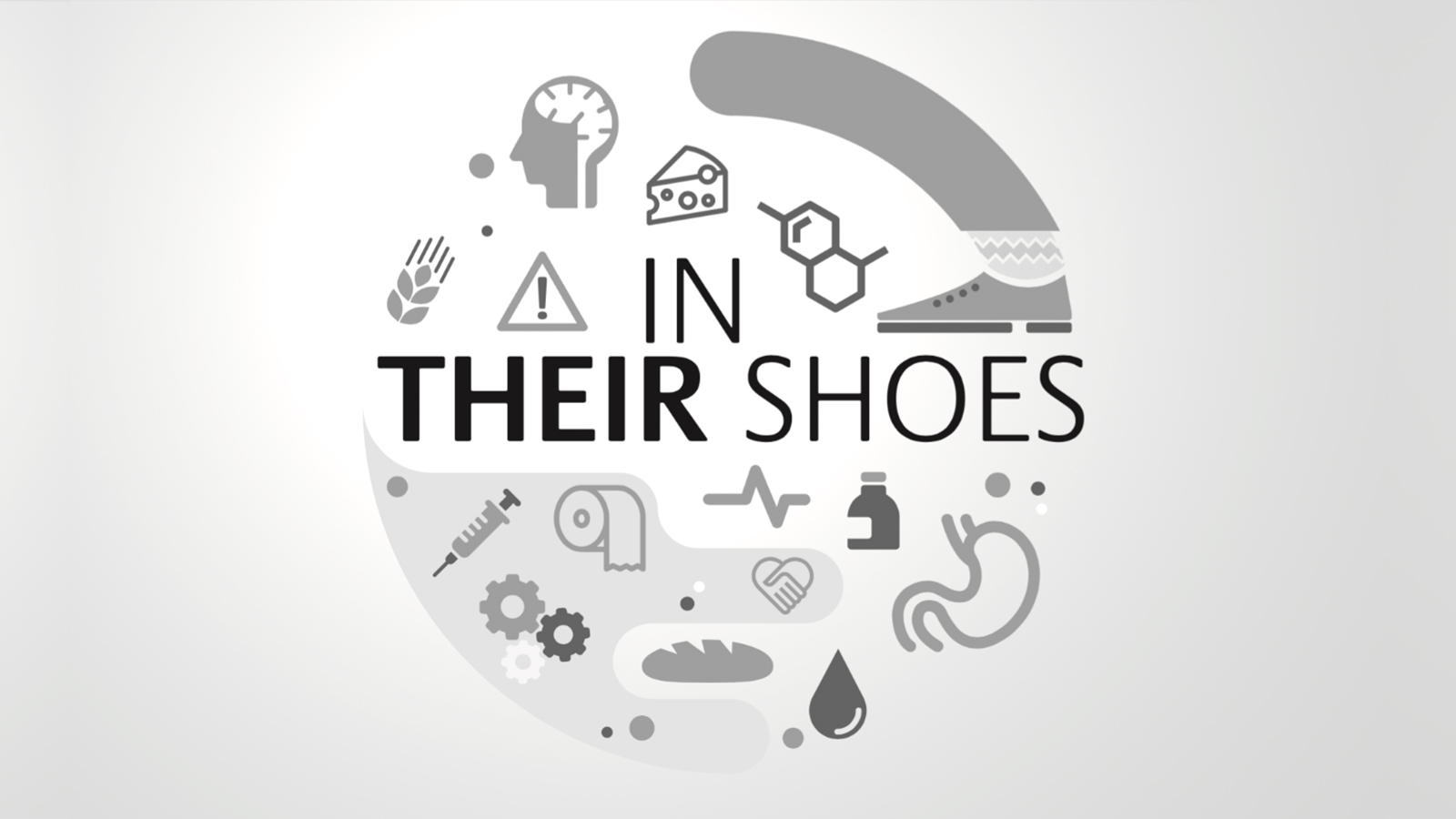
Research Study Highlights That It Really Does Help to Walk in a Patient’s Shoes
Many of us have used the phrase ‘I know how you feel’ without giving it a second thought. For patients living with chronic conditions such as inflammatory bowel disease (IBD), it can be extremely difficult to convey to others how they feel when explaining the complex, debilitating, and often life-changing impact their condition can have on their daily lives.
At Takeda, we put patients at the center of everything we do and recognize the importance of helping our employees better understand and engage with patients with IBD. As part of our commitment to patient centricity, Takeda developed the In Their Shoes program in 2015, an award-winning, immersive simulation in which the participants ‘become the patient’ to experience what it is like to live with IBD.
A recent research study conducted by the University of Westminster, U.K., and published in Frontiers in Psychology, has supported the idea that taking on the real-life experiences of a patient, such as the In Their Shoes program, provides a unique and effective way to understand the disease, connect with patients and enhance education around chronic diseases like IBD.[i]
Click for more - #InTheirShoes: What it’s like to be an IBD patient – how we’ve approached it
The research study
The University of Westminster, which is internationally recognized for patient-experience research, conducted an independent evaluation study, funded by Takeda, to assess the impact of our immersive In Their Shoes program for exposing the physical, emotional and psychosocial impact of living with IBD.
Over 100 employees from Takeda offices across 12 countries in Europe, Asia, and North America took part in the study and, using a variety of different research methods, the study was able to demonstrate that participants of the program gained a significantly better understanding of the physical symptoms as well as the emotional issues of IBD.
“The In Their Shoes program was very eye-opening for me to understand how someone with IBD needs to manage not only the treatment of their disease but the other aspects of their life… I have an understanding of not only how IBD not only causes discomfort and pain, but also the tremendous psychological and emotional impact it can have on patients and their loved ones,” said one participant from the U.S.

Spreading the learnings
Over 1,000 participants (with more than 750 of those being Takeda employees) from 28 countries have participated in the In Their Shoes program so far, and the numbers are growing. As a result of the success of the program, In Their Shoes is now being rolled out outside of Takeda on a wider scale to include healthcare professionals, policymakers/politicians, patient group representatives and journalists, with the hope that a wider audience gains a deeper understanding of how IBD affects patients’ daily and working lives and ultimately help the patients they serve.
[i] Cartwright T, Halton C. Walking in a patient’s shoes: an evaluation study of immersive learning using a digital training intervention. Front Psychol. 2018; https://doi.org/10.3389/fpsyg.2018.02124.
